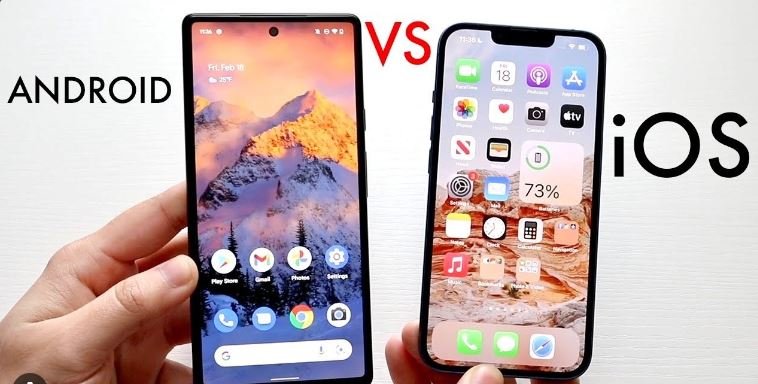The future of mobile operating systems: Android vs iOS remains a key topic as both platforms continue to evolve. These two giants dominate the global smartphone market, and each offers unique features, functionality, and user experiences. As mobile technology advances, it’s crucial to explore how Android and iOS will shape the future of mobile computing.

Customization vs. User Experience
Android and iOS differ significantly when it comes to customization and user experience, two factors that influence user choice. Android focuses on flexibility, while iOS prioritizes seamless integration and simplicity.
Firstly, Android allows users to customize their devices extensively. Users can change themes, install third-party apps, and personalize their phone’s interface. This customization appeals to tech enthusiasts who prefer a tailored experience.
On the other hand, iOS offers a more unified experience. Apple’s closed ecosystem ensures that all devices work together smoothly, which enhances user satisfaction. The simplicity of iOS appeals to those who prefer an intuitive and consistent interface.
Innovation and Ecosystem Expansion
Android and iOS continually push the boundaries of innovation, with both systems working to expand their ecosystems beyond smartphones. As smart devices and the Internet of Things (IoT) become more widespread, both platforms aim to integrate mobile operating systems into daily life.
Firstly, Android continues to lead in smart device integration. With Google’s voice assistant and various IoT connections, Android focuses on creating a connected home and smart device environment. Android’s open-source nature allows more manufacturers to adopt and integrate it into various devices.
Secondly, iOS takes advantage of its tightly-knit ecosystem to deliver an integrated experience. From the Apple Watch to HomeKit-enabled devices, iOS is pushing to create a seamless digital experience. The future of iOS lies in further refining these integrations, offering users more ways to control their digital environments effortlessly.
Security and Privacy
Android and iOS have both advanced in terms of security, though they approach it differently. As mobile threats increase, security and privacy have become critical factors for users.
Android continues to make improvements in security, though its open nature can lead to more vulnerabilities. Google has implemented regular security updates and more stringent app review processes to address concerns. However, the vast number of Android device manufacturers makes it challenging to ensure consistent updates across all devices.
iOS, on the other hand, prioritizes security through its closed system. Apple’s strict control over hardware and software makes iOS devices less vulnerable to external threats. This closed environment ensures that apps go through a rigorous review process, enhancing user privacy and security.
Conclusion
In conclusion, the future of mobile operating systems: Android vs iOS will focus on innovation, security, and user experience. Android’s flexibility and wide adoption allow it to lead in customization and smart device integration, while iOS will continue to offer a unified, secure ecosystem. Both platforms will play key roles in shaping the next generation of mobile technology, and users can expect continued advancements in customization, integration, and security from both Android and iOS.
